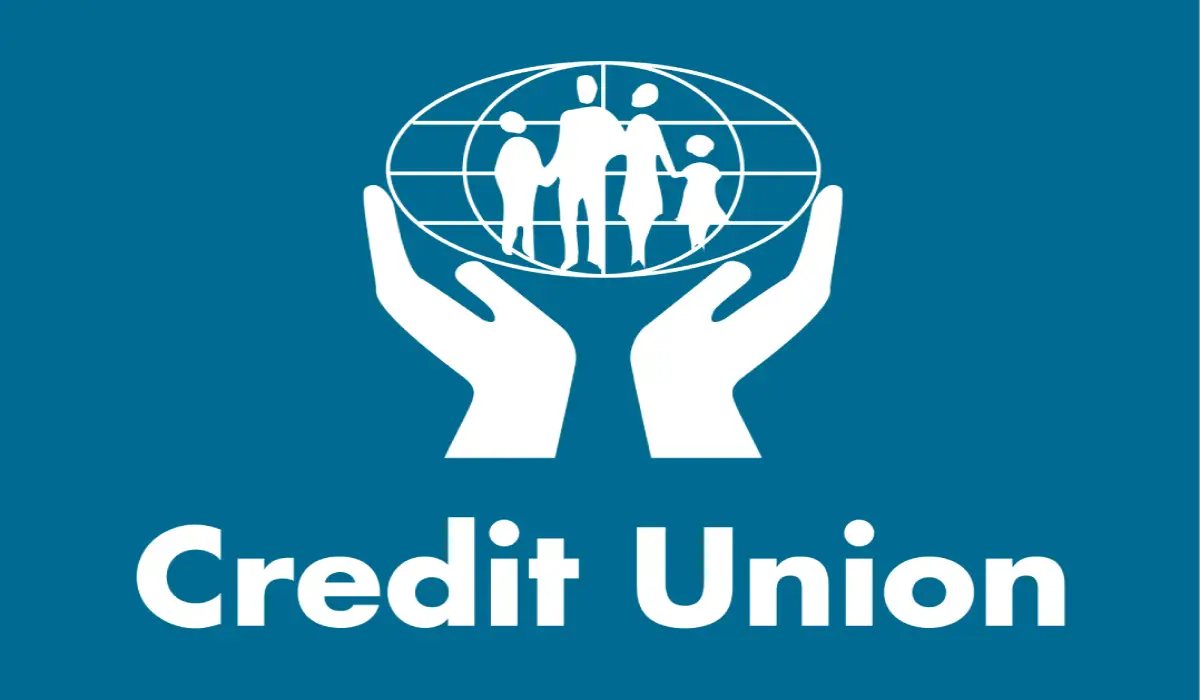Credit unions often stand out as a top choice for many borrowers when getting a personal loan. But why? Unlike traditional banks, credit unions are member-owned, not-for-profit institutions often providing more favourable terms, lower interest rates, and a more personalized service experience. If you’re considering a personal loan, understanding the benefits of credit unions and knowing which ones offer the best deals can help you make an informed decision.

- Certified pre-approval Process
- Online Application Available 24/7
- Find a Quote Easily
4
editorial team. We score based on factors
that are helpful for consumers, such as
how it affects credit scores, the rates and
fees charged, the customer experience,
and responsible lending practices.

- Certified pre-approval Process
- Online Application Available 24/7
- Find a Quote Easily
- 100% Online Refinance
4.5
editorial team. We score based on factors
that are helpful for consumers, such as
how it affects credit scores, the rates and
fees charged, the customer experience,
and responsible lending practices.

- Boost Credit Score
- Personal Loans
- Credit repair services
5
editorial team. We score based on factors
that are helpful for consumers, such as
how it affects credit scores, the rates and
fees charged, the customer experience,
and responsible lending practices.
- Big or Small Loan
- All Credit Types
- Fast Funding
4
editorial team. We score based on factors
that are helpful for consumers, such as
how it affects credit scores, the rates and
fees charged, the customer experience,
and responsible lending practices.

- High approval rates
- Financial guidance
- Unlimited access to credit options
4
editorial team. We score based on factors
that are helpful for consumers, such as
how it affects credit scores, the rates and
fees charged, the customer experience,
and responsible lending practices.

- Credit monitoring
- Personalized credit tips
- TransUnion® credit report and score
4.6
editorial team. We score based on factors
that are helpful for consumers, such as
how it affects credit scores, the rates and
fees charged, the customer experience,
and responsible lending practices.

- Provide tax advice
- Debt relief services
- Credit repair services
4
editorial team. We score based on factors
that are helpful for consumers, such as
how it affects credit scores, the rates and
fees charged, the customer experience,
and responsible lending practices.

- Est. APR = 0%
- Fees = None
- Recommended Credit = None
3.6
editorial team. We score based on factors
that are helpful for consumers, such as
how it affects credit scores, the rates and
fees charged, the customer experience,
and responsible lending practices.
What to Look for in a Credit Union
When choosing a credit union for a personal loan, there are several factors you need to consider:
Interest Rates
Interest rates can vary significantly between credit unions. Generally, credit unions offer lower interest rates than traditional banks, but it’s essential to shop around to find the best deal for your financial situation.
Loan Terms
Loan terms include the length of the loan and the repayment options available. Some credit unions offer more flexible terms, allowing you to choose a repayment period that suits your budget.
Membership Requirements
Credit unions have specific membership criteria, which could be based on your location, employer, or association with a particular group. Make sure you meet these requirements before applying.
Customer Service
Personalized service is one of the key benefits of credit unions. Look for a credit union with a reputation for excellent customer service, as this can make the borrowing process much smoother.
Related: Best Business Credit Cards Of August 2024
Top Credit Unions for Personal Loans
When it comes to finding the best credit union for personal loans, here are some top contenders:
Navy Federal Credit Union
Navy Federal Credit Union is the largest credit union in the U.S., serving millions of members worldwide, particularly those associated with the armed forces.
Loan Features:
- Competitive interest rates
- Flexible loan terms
- No origination fees
- Potential discounts for autopay
Membership is open to active-duty, retired, and veteran military members, their families, and Department of Defense employees.
PenFed Credit Union
PenFed Credit Union is known for its strong financial products, including personal loans, and its broad membership base.
Loan Features:
- Low interest rates
- No prepayment penalties
- Loan amounts up to $50,000
Initially created for military members, PenFed is now open to anyone willing to open a savings account with a minimum deposit.
Alliant Credit Union
Alliant Credit Union is a leading digital credit union that offers personal loans with a quick and easy online application process.
Loan Features:
- No application or prepayment fees
- Fixed interest rates
- Loan terms from 12 to 60 months
Membership is open to employees of specific organizations, those who live or work in qualifying communities, or anyone willing to support Foster Care to Success.

- Certified pre-approval Process
- Online Application Available 24/7
- Find a Quote Easily
4
editorial team. We score based on factors
that are helpful for consumers, such as
how it affects credit scores, the rates and
fees charged, the customer experience,
and responsible lending practices.

- Certified pre-approval Process
- Online Application Available 24/7
- Find a Quote Easily
- 100% Online Refinance
4.5
editorial team. We score based on factors
that are helpful for consumers, such as
how it affects credit scores, the rates and
fees charged, the customer experience,
and responsible lending practices.

- Boost Credit Score
- Personal Loans
- Credit repair services
5
editorial team. We score based on factors
that are helpful for consumers, such as
how it affects credit scores, the rates and
fees charged, the customer experience,
and responsible lending practices.
- Big or Small Loan
- All Credit Types
- Fast Funding
4
editorial team. We score based on factors
that are helpful for consumers, such as
how it affects credit scores, the rates and
fees charged, the customer experience,
and responsible lending practices.

- High approval rates
- Financial guidance
- Unlimited access to credit options
4
editorial team. We score based on factors
that are helpful for consumers, such as
how it affects credit scores, the rates and
fees charged, the customer experience,
and responsible lending practices.

- Credit monitoring
- Personalized credit tips
- TransUnion® credit report and score
4.6
editorial team. We score based on factors
that are helpful for consumers, such as
how it affects credit scores, the rates and
fees charged, the customer experience,
and responsible lending practices.

- Provide tax advice
- Debt relief services
- Credit repair services
4
editorial team. We score based on factors
that are helpful for consumers, such as
how it affects credit scores, the rates and
fees charged, the customer experience,
and responsible lending practices.

- Est. APR = 0%
- Fees = None
- Recommended Credit = None
3.6
editorial team. We score based on factors
that are helpful for consumers, such as
how it affects credit scores, the rates and
fees charged, the customer experience,
and responsible lending practices.
Related: Best Personal Loans For Bad Credit Of August 2024

First Tech Federal Credit Union
First Tech Federal Credit Union serves technology sector employees, providing competitive personal loan products.
Loan Features:
- Competitive APRs
- No prepayment penalties
- Flexible loan terms
Membership is available to employees of tech companies, their families, or members of the Computer History Museum.
Golden 1 Credit Union
Golden 1 Credit Union is a popular choice in California. It offers a range of financial products, including personal loans.
Loan Features:
- Low interest rates
- No collateral required
- Loan amounts up to $50,000
Membership is open to anyone who lives or works in California or is a member of a select organization.
Related: Personal Loans with Bad Credit | Best For Poor Credit Score
Comparing Credit Union Personal Loans
When comparing personal loans from different credit unions, it’s crucial to consider several factors:
Interest Rates Comparison
Interest rates are a significant factor in the cost of a loan. Credit unions typically offer lower rates than banks, but rates can still vary widely between credit unions. Always compare the annual percentage rate (APR) different institutions provide to find the best deal.
Loan Terms Comparison
Loan terms, including the length of the loan and payment flexibility, can differ. Some credit unions may offer more flexible terms, allowing for extended repayment periods or the option to pay off the loan early without penalties.
Fees and Penalties
Look out for any fees associated with the loan, such as origination fees, late payment penalties, or prepayment penalties. If you’re not careful, these can add to the cost of your loan.
Related: What Do Credit Repair Companies Do?
How to Apply for a Personal Loan at a Credit Union
Applying for a personal loan at a credit union is straightforward if you follow these steps:
Step-by-Step Application Process
- Check Membership Requirements: Ensure you meet the membership criteria for the credit union.
- Gather Necessary Documents: Typically, you’ll need proof of income, identification, and membership eligibility.
- Complete the Application: This can be done online or in person. Be prepared to provide details about your financial situation.
- Wait for Approval: The credit union will review your application and credit history. Approval times can vary, but many credit unions offer quick decisions.
- Review and Accept the Offer: Once approved, review the loan terms carefully before accepting the offer.
Documents You Need
- Proof of identity (e.g., driver’s license, passport)
- Proof of income (e.g., pay stubs, tax returns)
- Credit union membership proof
Tips for a Smooth Application
- Check your credit score before applying to understand your eligibility.
- Ensure all documents are up-to-date and accurate.
- Consider pre-qualifying to get an idea of the rates you might be offered without affecting your credit score.
Related: How to Repair Your Credit Score
Pros and Cons of Credit Union Personal Loans
Before deciding, weigh the advantages and disadvantages:
Advantages
- Lower Interest Rates: Credit unions often offer better rates than banks.
- Personalized Service: Members often receive more personalized and flexible service.
- Lower Fees: Credit unions are known for charging fewer fees than traditional banks.
Disadvantages
- Membership Requirements: You must meet specific criteria to join.
- Limited Locations: Credit unions may have fewer branches, limiting in-person service.
- Loan Amount Limits: Some credit unions may have lower maximum loan amounts than banks.

- Certified pre-approval Process
- Online Application Available 24/7
- Find a Quote Easily
4
editorial team. We score based on factors
that are helpful for consumers, such as
how it affects credit scores, the rates and
fees charged, the customer experience,
and responsible lending practices.

- Certified pre-approval Process
- Online Application Available 24/7
- Find a Quote Easily
- 100% Online Refinance
4.5
editorial team. We score based on factors
that are helpful for consumers, such as
how it affects credit scores, the rates and
fees charged, the customer experience,
and responsible lending practices.

- Boost Credit Score
- Personal Loans
- Credit repair services
5
editorial team. We score based on factors
that are helpful for consumers, such as
how it affects credit scores, the rates and
fees charged, the customer experience,
and responsible lending practices.
- Big or Small Loan
- All Credit Types
- Fast Funding
4
editorial team. We score based on factors
that are helpful for consumers, such as
how it affects credit scores, the rates and
fees charged, the customer experience,
and responsible lending practices.

- High approval rates
- Financial guidance
- Unlimited access to credit options
4
editorial team. We score based on factors
that are helpful for consumers, such as
how it affects credit scores, the rates and
fees charged, the customer experience,
and responsible lending practices.

- Credit monitoring
- Personalized credit tips
- TransUnion® credit report and score
4.6
editorial team. We score based on factors
that are helpful for consumers, such as
how it affects credit scores, the rates and
fees charged, the customer experience,
and responsible lending practices.

- Provide tax advice
- Debt relief services
- Credit repair services
4
editorial team. We score based on factors
that are helpful for consumers, such as
how it affects credit scores, the rates and
fees charged, the customer experience,
and responsible lending practices.

- Est. APR = 0%
- Fees = None
- Recommended Credit = None
3.6
editorial team. We score based on factors
that are helpful for consumers, such as
how it affects credit scores, the rates and
fees charged, the customer experience,
and responsible lending practices.
FAQs About Credit Union Personal Loans
Can I get a personal loan from a credit union with bad credit?
Yes, many credit unions consider factors beyond your credit score, making it possible to get a loan with less-than-perfect credit.
How does a credit union personal loan compare to a bank loan?
Credit union loans typically have lower interest rates and fees, but membership requirements can be a hurdle.
What happens if I default on a credit union personal loan?
Defaulting can lead to severe consequences, including damage to your credit score, legal action, and the loss of membership.
Are credit union personal loans secured or unsecured?
Most credit union personal loans are unsecured, meaning they don’t require collateral.
How long does it take to get approved for a credit union personal loan?
Approval times vary, but many credit unions offer quick decisions, sometimes within the same day.
Understanding Credit Union Loan Offers
Credit unions differ from banks in several significant ways, particularly regarding loan offers. One of the most attractive features of credit union loans is the transparency and fairness built into their offerings. Credit unions, by design, are member-focused and aim to return profits to their members rather than shareholders. This often results in lower interest rates, fewer fees, and more flexible loan terms. For anyone considering a personal loan, understanding the structure and benefits of credit union loan offers is essential.
Member Ownership
Credit unions operate under a cooperative model, meaning they are owned and run by their members. Each member has a stake in the organization and a voice in its run. This ownership model fosters a culture of fairness and member-first policies. When you take out a loan from a credit union, you’re essentially borrowing from a pool of funds contributed by fellow members. This structure allows credit unions to offer competitive loan products that often beat what traditional banks can offer.
Non-Profit Status
Unlike banks, credit unions are non-profit institutions. This status means they aren’t driven by the need to generate profits for shareholders. Instead, any profits generated by the credit union are returned to members through lower interest rates, reduced fees, and other member benefits. When seeking a personal loan, this non-profit structure can translate into significant savings over the life of the loan.
Personalized Loan Terms
Credit unions are often more flexible with loan terms than larger banks. This flexibility can be especially beneficial if you have unique financial circumstances. Credit unions may work with you to adjust loan terms or payment schedules to better fit your needs. This personalized approach is a hallmark of the credit union experience and can make managing a personal loan much more manageable.
Navigating Membership Requirements
One of the most distinctive features of credit unions is their membership requirements. Unlike banks, which are open to anyone, credit unions restrict membership based on specific criteria. These criteria vary widely depending on the credit union and include factors like employment, geographic location, or association with certain groups or organizations.
Common Membership Criteria
- Employment-Based Membership: Some credit unions are associated with specific employers. For example, a credit union may be open only to employees of a particular company or industry. This membership type is common in education, healthcare, or technology sectors.
- Geographic-Based Membership: Many credit unions are community-based, serving individuals who live, work, or worship in a particular geographic area. These credit unions often have a strong local presence and are deeply involved in the community.
- Association-Based Membership: Some credit unions allow membership based on association with certain groups, such as labor unions, alum associations, or professional organizations.
How to Join a Credit Union
If you’re interested in joining a credit union to take advantage of their loan offerings, the first step is to determine if you meet the membership criteria. Most credit unions provide detailed information on their websites about who is eligible to join. Sometimes, even if you don’t meet the primary membership criteria, you can still participate by donating to a partnering charity or organization.
Once you’ve confirmed your eligibility, joining is typically straightforward. You’ll need to open a savings account with a minimum deposit, which can be as low as $5. This deposit grants you membership and a stake in the credit union. You can apply for loans from there and use the credit union’s total financial products and services.
Maximizing Your Loan Benefits
To get the most out of a credit union personal loan, it’s essential to understand how to maximize the benefits offered by these institutions. Here are some tips to help you get the best deal on your loan:
Shop Around
Even among credit unions, loan rates and terms can vary. It’s a good idea to shop around and compare offers from multiple credit unions before deciding. Pay close attention to the Annual Percentage Rate (APR), as this will give you a clearer picture of the overall cost of the loan, including any fees or additional costs.
Take Advantage of Member Discounts
Many credit unions offer additional loan rate discounts for members who take specific actions, such as setting up automatic payments or maintaining a certain balance in their savings account. Be sure to ask about any available discounts when applying for your loan.
Consider Loan Protection Options
Credit unions often offer loan protection products, such as credit life insurance or disability insurance, that can provide financial security if you cannot make your loan payments due to unexpected circumstances. While these products come with an additional cost, they can offer peace of mind and protect your financial health.
Understand the Fine Print
Before accepting any loan offer, take the time to read and understand all the terms and conditions. Pay attention to details like late payment penalties, fees for paying off the loan early, and any conditions that could trigger changes in the loan terms. A thorough understanding of these factors will help you avoid surprises.

- Certified pre-approval Process
- Online Application Available 24/7
- Find a Quote Easily
4
editorial team. We score based on factors
that are helpful for consumers, such as
how it affects credit scores, the rates and
fees charged, the customer experience,
and responsible lending practices.

- Certified pre-approval Process
- Online Application Available 24/7
- Find a Quote Easily
- 100% Online Refinance
4.5
editorial team. We score based on factors
that are helpful for consumers, such as
how it affects credit scores, the rates and
fees charged, the customer experience,
and responsible lending practices.

- Boost Credit Score
- Personal Loans
- Credit repair services
5
editorial team. We score based on factors
that are helpful for consumers, such as
how it affects credit scores, the rates and
fees charged, the customer experience,
and responsible lending practices.
- Big or Small Loan
- All Credit Types
- Fast Funding
4
editorial team. We score based on factors
that are helpful for consumers, such as
how it affects credit scores, the rates and
fees charged, the customer experience,
and responsible lending practices.

- High approval rates
- Financial guidance
- Unlimited access to credit options
4
editorial team. We score based on factors
that are helpful for consumers, such as
how it affects credit scores, the rates and
fees charged, the customer experience,
and responsible lending practices.

- Credit monitoring
- Personalized credit tips
- TransUnion® credit report and score
4.6
editorial team. We score based on factors
that are helpful for consumers, such as
how it affects credit scores, the rates and
fees charged, the customer experience,
and responsible lending practices.

- Provide tax advice
- Debt relief services
- Credit repair services
4
editorial team. We score based on factors
that are helpful for consumers, such as
how it affects credit scores, the rates and
fees charged, the customer experience,
and responsible lending practices.

- Est. APR = 0%
- Fees = None
- Recommended Credit = None
3.6
editorial team. We score based on factors
that are helpful for consumers, such as
how it affects credit scores, the rates and
fees charged, the customer experience,
and responsible lending practices.
The Role of Credit Unions in Financial Education
Another benefit of working with a credit union is access to financial education resources. Many credit unions are deeply committed to helping their members achieve financial well-being and offer a range of educational programs and tools designed to improve financial literacy.
Workshops and Seminars
Credit unions often host workshops and seminars on various financial topics, including budgeting, saving, investing, and managing debt. These events are typically free or offered at a low cost to members and can be an excellent resource for learning how to manage your finances effectively.
Online Resources
Credit unions provide many online resources, including articles, calculators, and financial planning tools. These resources are designed to help members make informed financial decisions and can be particularly useful when planning to take out a personal loan.
One-on-One Financial Counseling
Some credit unions offer personalized financial counseling services, where members can meet with a financial advisor to discuss their financial goals and develop a plan to achieve them. This service can be particularly beneficial if you’re unsure how to manage a personal loan or looking for strategies to improve your overall financial health.
Building a Long-Term Relationship with Your Credit Union
One of the unique aspects of working with a credit union is the opportunity to build a long-term relationship with the institution. Because credit unions are member-owned, they often take a more personal approach to banking, which can work to your advantage in several ways.
Future Loan Opportunities
As you build a positive history with your credit union, you may find it easier to secure loans in the future. Credit unions are often more willing to work with long-standing members, offering better rates or favorable terms.
Tailored Financial Products
Credit unions tend to offer products and services tailored to their members’ needs. By maintaining a long-term relationship with your credit union, you can take advantage of these products as they are developed. This could include everything from special savings accounts to customized loan packages.
Community Involvement
Credit unions are known for their strong community involvement. By staying connected with your credit union, you can also become more involved in your local community through volunteer opportunities, community events, or other initiatives.
Credit unions offer a compelling alternative to traditional banks for personal loans, providing lower interest rates, better terms, and a more personalized banking experience. By understanding how credit unions work, what to look for in a loan offer, and how to maximize the benefits, you can make an informed decision that supports your financial goals. Credit unions have much to offer, whether you’re looking for a low-interest personal loan, seeking financial education resources, or hoping to build a long-term banking relationship.
What is the difference between a credit union and a bank?
A credit union is a member-owned, non-profit institution that typically offers lower interest rates and fees. At the same time, a bank is a for-profit institution that serves the general public.
Can I join more than one credit union?
Yes, you can join multiple credit unions as long as you meet the membership criteria for each one.
Do credit unions report to credit bureaus?
Credit unions report loan activity to credit bureaus, just like banks. Timely payments can help improve your credit score.
Are there any downsides to credit union loans?
The primary downside is the membership requirement, which can limit your options. Additionally, credit unions may have fewer branches, which could be inconvenient for some members.
Can I refinance a loan with a credit union?
Yes, many credit unions offer loan refinancing options to help you secure a lower interest rate or better loan terms.


 Read More
Read More 





One Response